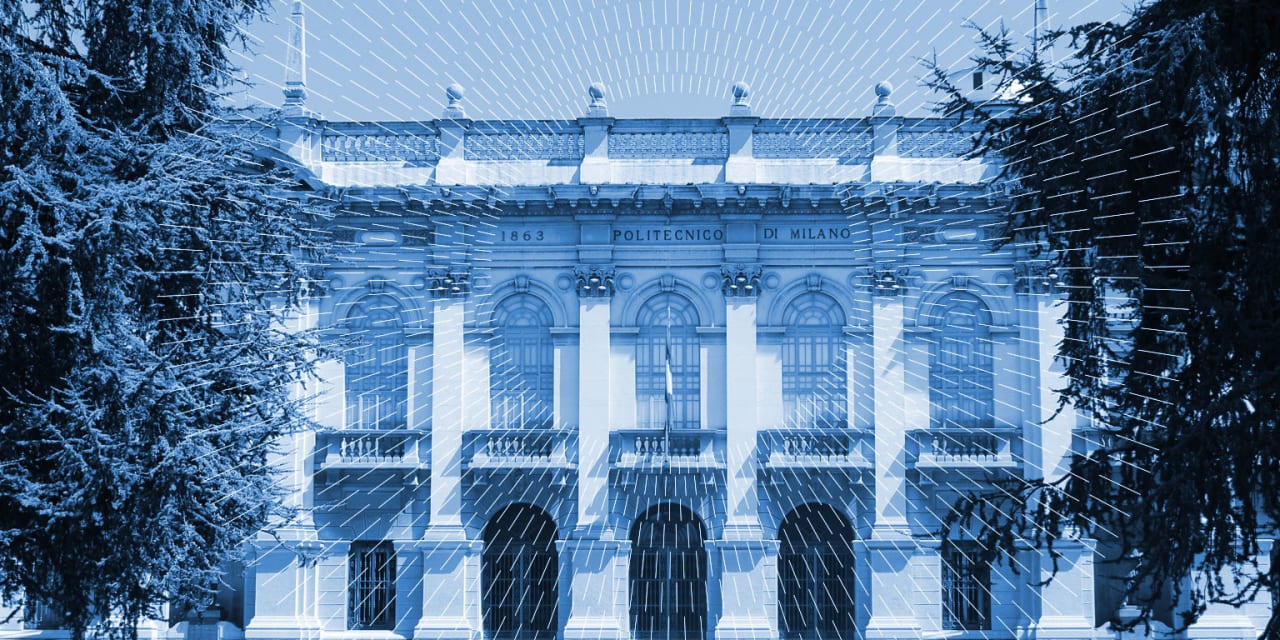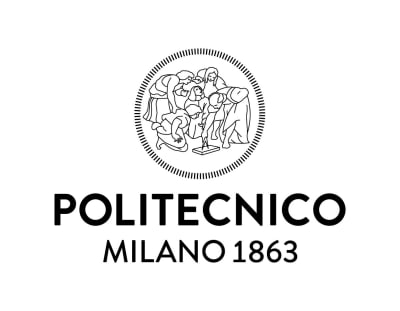
MSc in Music and Acoustic Engineering
Politecnico di Milano

Key Information
Select location
Campus location
Milan, Italy
Languages
English
Study format
Blended, On-Campus
Duration
2 years
Pace
Full time
Tuition fees
EUR 3,898 / per year **
Application deadline
Request info *
Earliest start date
Sep 2024
* 1st call (for all the programs and all the countries): from 12th September till 9th November 2023. 2nd call (for all the programs and all the countries): from 9th January till 29th February 2024
** tuition fees for Non-EEA students correspond automatically to the full contribution of 3898,20€; tuition fees for EEA students range from about 895,20 € to 3898,20 € per year
Introduction
Mission and Goals
The postgraduate program in "Music and Acoustic Engineering" forms experts and designers who are able to face consolidated as well as emerging technological challenges in the audio, music and acoustics areas:
- Audio: acquisition/capturing, processing, analysis, synthesis, reconstruction/rendering, classification, storage, organization, representation, and publishing;
- Acoustics: analysis; control; characterization; improvement, optimization, and design of musical instruments, of listening environments and vibrational systems in general.
- Music: analysis; classification; annotation; transcription; organization; modeling and representation; visualization; assistance to composition, orchestration, arrangement, and production.
In order to do so, students learn to make synergistic use of a multi-disciplinary knowledge ranging from computer science to telecommunications, from computational acoustics to numerical modeling/analysis, from electroacoustics to vibrational and room acoustics.
Admissions
Curriculum
Music and Acoustic Engineering is a two-year Master Program that falls within the area of Information Engineering (the "reference disciplinary area", as identified by the Italian Ministry of Education, University and Research, is LM-32, corresponding to Computer Science and Engineering).
This M.S. program has two tracks, Acoustic Engineering identified as M.C.R. and Music Engineering identifies as M.M.I. The M.C.R. track is offered in Cremona Campus and has a special focus on computational, vibrational, musical, and room acoustics. The M.E. track is offered in Milano Leonardo Campus and is more concerned with all aspects of musical informatics; audio and multimedia signal processing; music information extraction and retrieval; and music production technologies.
The following are the main courses that characterize both tracks:
- Fundamentals of Acoustics (1st yr, 1st semester);
- Computer Music - Representations and Models (1st year, 1st semester);
- Advanced Coding Tools and Methodologies (1st year, 1st semester);
- Electronics and Electroacoustics for Sound Engineering (1st year, 2nd semester);
- Fundamentals of Vibration Analysis and Vibroacoustic (1st year, 2nd semester);
- Computer Music - Languages and Systems (1st year, 2nd semester)
The following courses are specific of Acoustic Engineering:
- Signals and Systems (1st year, 2nd semester)
- Musical Acoustics (2nd year, 1st semester)
- Room Acoustics (2nd year, 1st semester)
- Numerical Modeling and Simulation in Acoustics (2nd year, 1 st semester);
- Digital Audio Analysis and Processing (2nd year, 2nd semester);
- Courses from the Department of Musicology of the University of Pavia offered in Cremona.
The following courses are specific to Music Engineering:
- Multimedia Signal Processing (1st year, 1st semester)
- Sound Analysis, Synthesis, and Processing (1st year, 2nd semester)
- Creative Programming and Computing (2nd year, 1st semester)
- Music Production Technologies (2nd year, 1st semester)
- Courses from the Conservatory of Music of Milan.
Note: syllabi of the above courses will be published as soon as they will be updated.
Subjects
The M.Sc. offers two tracks:
- Acoustic Engineering: emphasis on vibrating and resonant systems
- Music Engineering: emphasis on audio and musical information
Mandatory courses
- Area Audio and Acoustic Signal Processing
- Multimedia Signal Processing, Digital Audio Analysis and Processing, Sound Synthesis and Spatial Processing, Computer Music: Representations and Models, Computer Music: Languages and Systems.
- Area Electronics and Electroacoustics
- Electronics for Sound Engineering, Electroacoustics for Sound Engineering.
- Area Creative Computing
- Advanced coding tools and methodologies, Creative programming and computing, Music Production Technologies.
- Area Computational Acoustics
- Fundamentals of Acoustics, Numerical Modelling, and Simulation of Acoustics, Fundamentals of Vibration Analysis and Vibroacoustics, Musical Acoustics, Room Acoustics.
Rankings
QS Rankings 2023 (June 2022)
- 1st in Italy
- 139th in the world
Scholarships and Funding
Several scholarship options are available. Please check the institute website for more information.
Career Opportunities
"Music and Acoustic Engineering" is an offshoot of Computer Science and Engineering, and its graduates can count on a wide availability of well-payed positions, which is typical of this sector. Its graduates, however, can capitalize on their strong background in computer science as well as in signal processing and acoustics, which creates opportunities in the areas of musical acoustics, environmental acoustics, and electroacoustics, depending on the choice of “affine” and complementary courses of their study plan.
The "Acoustic Engineering" track gives the student the opportunity to gather expertise in the design and production of musical instruments (acoustic, electronic, and digital); high-end loudspeakers and transducers; P.A. systems and audio amplification/diffusion systems, which are all areas of international interest, where Italy has a strong and long-standing tradition. Another sector where Italy excels is that of microelectronics, especially as far as audio MEMS devices and other types of vibroacoustic sensors are concerned. Other work opportunities are in the area of acoustic surveys and design of listening environments. The number of positions in this area is growing, especially in the public sector, which is particularly interested in dealing with acoustic pollution and in improving acoustic comfort. There is also a number of companies that do not specifically operate in the audio or acoustic area, but are still interested in studying, designing and monitoring the amount and the quality of noise emissions (e.g. the timbral qualities of the noise produced by domestic appliances or by cars), or the acoustic comfort and the acoustic design of acoustic signals (e.g. in elevators, or in-car interiors), or the noise level of devices and systems (e.g. fan noise in computers, rolling noise of car tires, etc.).
The "Music Engineering" track, focuses on building a strong background in computer science and in signal processing, which paves the way toward engineering jobs in all the areas concerning creation, analysis, organization, managing, and rendering of audio and of multimedia content. The most representative companies in this area are music production labels and music distributors, radio and TV broadcasting companies (both national and private), advertising agencies, and the companies that offer audio and audio-video streaming services. Particularly interesting is also the sector focusing on audience intelligence, or on advertisement monitoring (both over radio and TV broadcasts, and over social media) for automated user profiling as well as content personalization.
Many are the companies, particularly international corporations, which address the audio consumer market. In these companies, Music Engineers can play a relevant role, thanks to their strong background in signal processing algorithms. This expertise is also very attractive for companies in the area of microelectronics and MEMS for audio consumer applications.
Employment Statistics
Since this is a new program, no employment statistics are available yet. However, the program is affine to Computer Science and Engineering and, as such, it inherits the employability benefits of this area. According to official data collected by ISTAT (the Italian National Institute of Statistics), of all graduates of Postgraduate Programs in Italy, Information Engineers find a suitable job in the shortest time (within 6 months of graduation as the national average, and within 2 months for graduates of the Politecnico di Milano).